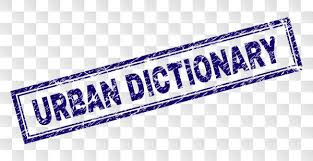How Much Do You Know About Urban Dictionary,
The Urban Dictionary,

Read this article to know more about the urban dictionary.
The website was founded in 1999 by Aaron Peckham. Common words, but now we are used to describing any word, event, or sentence (including explicit sex). Words or phrases in the Urban Dictionary may have many meanings, examples of usage, and tags. Since 2014, the dictionary has had more than seven million meanings; approximately 2,000 new entries were added daily.
History
The site was founded in 1999 by Aaron Peckham when he was a new computer science student at California Polytechnic State University, in San Luis Obispo. He introduced the site to compare the urban saying used by university students in different parts of California. He had previously created a spoof version of Ask Jeeves web search engine while studying at Cal Poly but closed the website after receiving a letter of violation. He originally created the Urban Dictionary as a parody of real dictionaries, which he thought were often "difficult" and "extremely self-centered".
The Supreme Court had used the Urban Dictionary to assist in translating slang songs in a case involving two rapists.
In April 2009, the site registered 15 million unique visitors, while 80 percent of its monthly users were less than 25. In July 2009, Peckham explained to The New York Times that the Urban Dictionary is not Wikipedia, because it does not try to be neutral: "Every single word here [Urban Dictionary] is written by a person with a vision, with personal experience of the word entry.
The website was later referred to a 2011 Regional Court appeal by the Bureau of Alcohol, Tobacco, Firearms, and Explosives (ATF) to document the defamatory term "murk", as it is used for a criminal threat.
Over the course of 30 days in March and April 2011, 67,000 people wrote 76,000 new translations for the Urban Dictionary, while 3,500 volunteer editors were registered. In an April 2011 article in The Guardian entitled "Honoring Urban Dictionaries", Peckham revealed a summary of 10 rules he had developed for site content: "Publish celebrity names but reject 'real life' names. Reject nonsense, inside jokes, and anything capitalized on racial and sexual harassment is permissible, racist and sexist profiles are not allowed.
In early 2014, the 32-year-old Peckham lived in San Francisco, US, and, although he did not disclose exact figures, informed the media that the site was "stable and growing", and generated enough profit for both of them. and environmental care. Peckham continued to be the sole employee of the site and emphasized that he did not care about business support or first-time public offering (IPO): if that happens. As of January 5, 2014, 50% of site traffic was mobile and the iPhone app was downloaded about three million times. Although English text was generally available before the translation of many languages, some words from languages compiled or translated into English-speaking communities were published, including those from Swahili, Arabic, and Fula.
Content
In the context of the Urban Dictionary, "definitions" include not only literal meanings but also definitions. Thus, "defining" a word or phrase in the Urban Dictionary does not necessarily mean a strong meaning; just a brief description of a word or phrase may be sufficient to add to the dictionary.
Originally, the Urban Dictionary was intended as a dictionary for slang, or cultural terms or phrases, usually not found in common dictionaries, but now it is used to define any word or phrase. Words or phrases in the Urban Dictionary may have multiple meanings, examples of usage, and tags. Other examples include. Urban Dictionary visitors can submit descriptions without registration but must provide a valid email address.
Quality control
By default, each description is accepted or rejected based on the number of "Publish" or "Do Not Publish" votes you receive from volunteer editors. Editors are not bound by any form of authorization or rejection of definitions. Previously editors needed a valid email address, but no longer needed it, as three options were given new names: "Add !," "Save Out !," and "I Can't Decide." However, a Facebook or Gmail account is required to post a new description. Editors are not allowed to edit the spelling entries, words, or punctuation marks.
Content issues
The Urban Dictionary has been criticized for handling and failing to remove offensive posts, including content containing racial and sexual content. For example, numerous aboriginal definitions of "aboriginal" have applied for removal from Change.org, which has received more than 7,000 signatures.
The Urban Dictionary Guides lists "hate speech, bullying, and any other statements intended to discriminate against or incite violence against others" as a reported offense.
Usage
In November 2014, the Advertise website said that, monthly, the Urban Dictionary is estimated at 72 million imps.




.jpg)